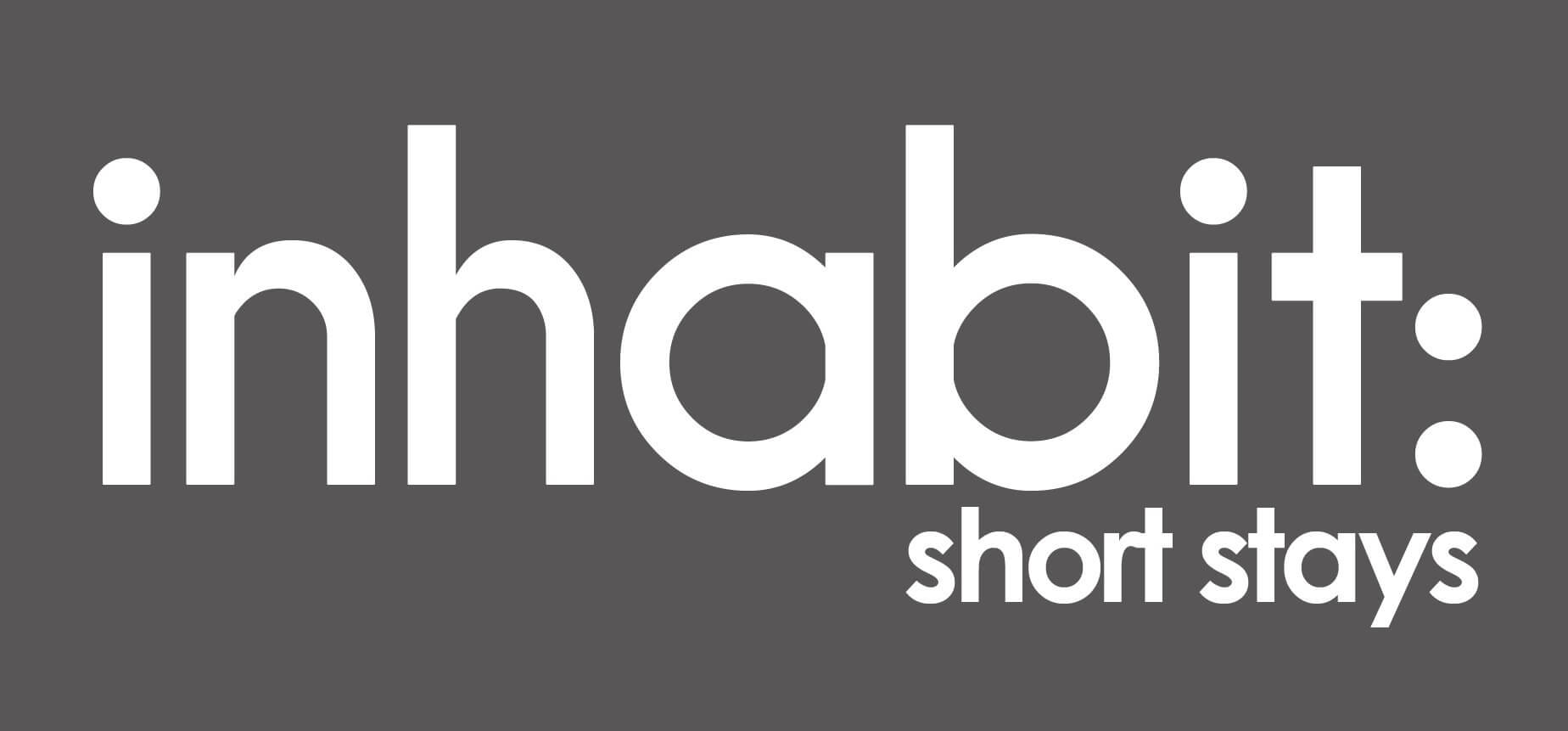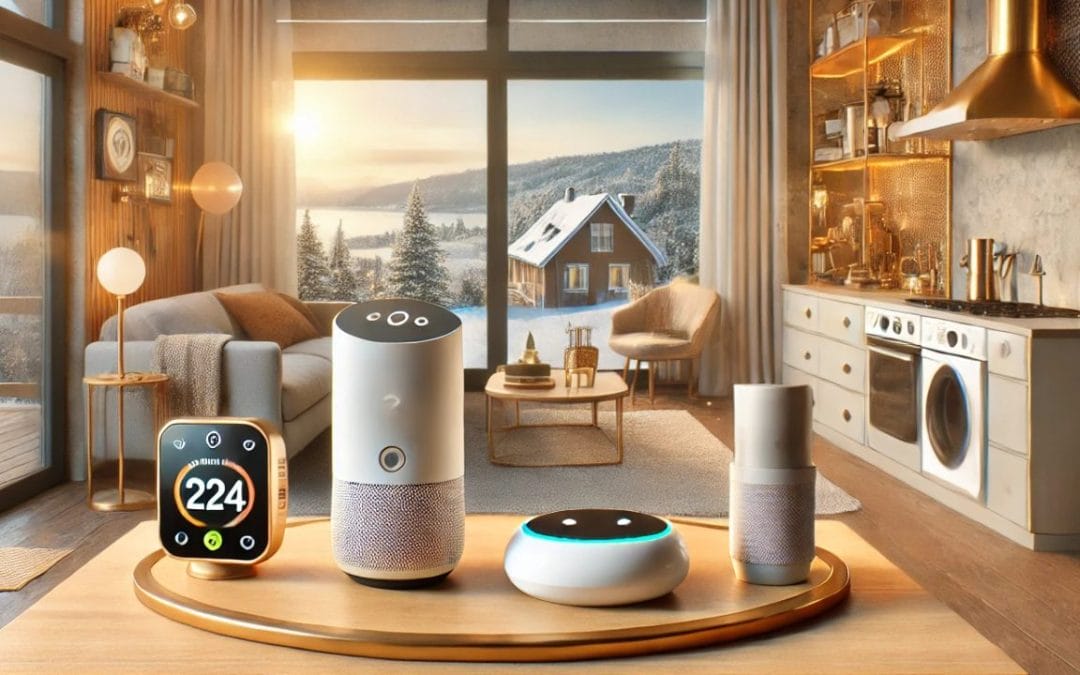As more homeowners turn to short-term rental platforms like Airbnb, Vrbo, and Booking.com, smart devices are becoming essential tools for improving guest experiences and streamlining property management. These devices not only help attract more bookings but also enhance sustainability, security, and convenience.
Before investing in any smart technology for your holiday let, assessing whether it will benefit you and your guests is important. Smart home automation can make your property stand out, increase its appeal, and even justify higher nightly rates.
Below are some of the best smart devices for holiday let hosts for 2024. They are designed to improve guest experience while making your job easier.
Benefits of Smart Devices for Holiday Lets
Smart devices offer several advantages for holiday let owners:
- Enhanced Guest Experience: Guests appreciate modern amenities, and smart technology can elevate their stay, making your property more attractive.
- Energy Efficiency: Smart devices like thermostats and lighting can help reduce energy consumption, reducing utility bills.
- Remote Management: With automation, you can control and monitor your property from anywhere, simplifying operations.
- Increased Security: Smart locks, cameras, and sensors improve the security of your property and offer peace of mind to you and your guests.
- Higher Property Value: Adding smart features can increase the value of your holiday let and set it apart from the competition.
Best Smart Devices for Airbnb Holiday Homes
Smart Thermostats
A smart thermostat is one of the best devices to add to your Airbnb, especially if you manage properties remotely. You can adjust the temperature to create a welcoming atmosphere before guests arrive and even control energy usage when the property is vacant.
Popular smart thermostats like Nest and Hive can detect when guests are home or away, optimizing energy use. They also provide “frost protection,” a must for holiday home insurance, preventing pipes from freezing during colder months.
Hive Thermostat Summary:
The Hive Thermostat offers an easy-to-use remote control of your heating and hot water, allowing you to adjust settings from your smartphone or tablet. With features like scheduling, geolocation reminders, and frost protection, it helps you manage energy use and prevent issues like frozen pipes. Hive integrates nicely with smart home systems like Amazon Alexa and Google Assistant and is a cost-effective option for holiday let owners looking to add smart functionality. While it lacks the learning capabilities of some competitors, it’s a simple, reliable choice for energy management.
Nest Thermostat Summary:
The Nest Thermostat is a smart heating system that learns your habits and automatically adjusts your heating and cooling schedule to optimize energy efficiency. It offers detailed energy reports, remote control via a mobile app, and integration with Google’s ecosystem. Features like Home/Away Assist and frost protection enhance both energy savings and property safety. However, it comes at a higher price point than other options like Hive; its advanced learning capabilities and sleek design make it a premium choice for smart home automation.
Hive vs Nest Comparison
| Feature | Hive Thermostat | Nest Thermostat |
|---|---|---|
| Learning Capabilities | No | Yes (Auto-schedules based on user behavior) |
| Remote Control | Yes (via app or wall unit) | Yes (via app or wall unit) |
| Integration with Smart Devices | Works with Alexa, Google Assistant, and HomeKit | Works with Google Assistant and Alexa |
| Geolocation | Yes | Yes (Home/Away Assist feature) |
| Energy Reports | Basic reports | Detailed reports |
| Price | Mid-range, more affordable | Higher price point |
| Frost Protection | Yes | Yes |
| Multi-Zone Support | Yes (with additional thermostats) | Yes (with additional thermostats) |
| Design | Simple and functional | Sleek and modern |
Smart Locks
One of the most convenient upgrades for Airbnb hosts is installing a smart lock. Keyless entry eliminates the hassle of arranging key handovers and reduces the chances of lost or stolen keys. With smart locks like Yale or SmartLock, you can assign unique access codes to guests for their stay and receive notifications of check-ins and check-outs.
This automation also works well for cleaners and maintenance teams, allowing temporary access without needing to be present in person. Always ensure your lock system has a manual override in case of technology failure.
Simpled Smart Locks for Airbnb
For our UK Airbnb properties, we’ve transitioned from traditional lockboxes to Simpled Smart Locks, and they have been a complete game-changer. Simpled locks offer remote control features, allowing us to change guest access codes without being on-site. This is particularly useful for streamlining check-ins and ensuring security for every stay.
Previously, using lockboxes required manual code changes and was less secure. With Simpled, we can manage everything remotely via an app, which saves time and adds convenience. These locks are also weatherproof and have advanced features such as fingerprint recognition and touchscreen keypads, offering multiple ways for guests to unlock the door.
We’ve been using Simpled locks for over six months. Despite one minor issue, the customer service was excellent—they quickly sent out a replacement lock, showing their commitment to customer satisfaction.
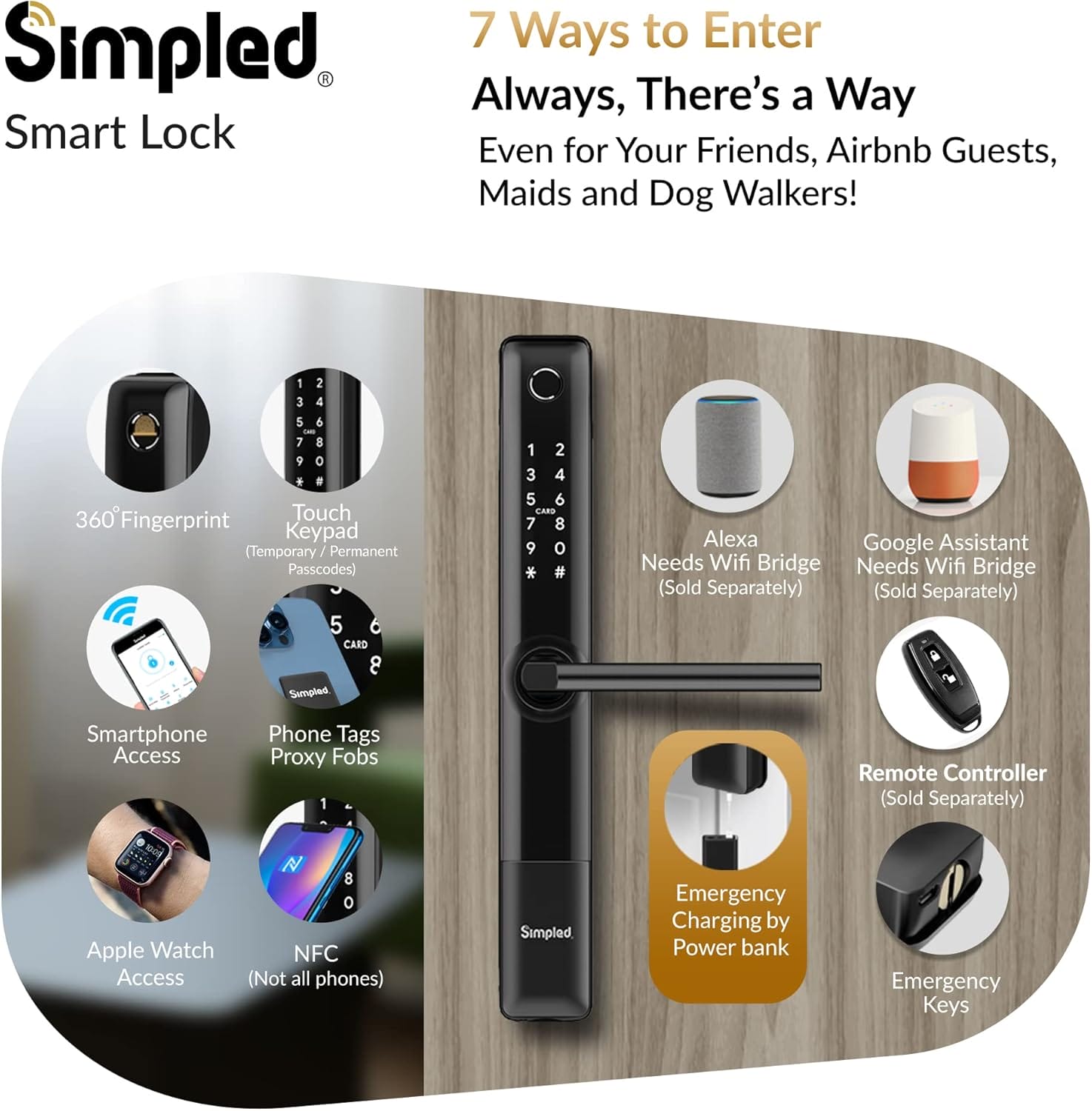
Key Features of Simpled Smart Locks:
- Remote Code Management: Easily change guest access codes from anywhere using the Simpled app.
- Multiple Access Methods: Guests can unlock the property using a PIN code, fingerprint, or key fob, providing flexibility.
- Weatherproof Design: Designed to withstand the elements, making them ideal for outdoor use.
- Security Alerts: Get notifications if any tampering or unauthorized access is attempted.
- Easy Installation: Simple to install on most standard doors without requiring major modifications.
Changing codes remotely has been particularly useful for managing multiple properties across different locations. For any Airbnb host looking to upgrade their security, Simpled Smart Locks are a reliable and efficient solution.
Video Doorbells
Video doorbells, such as those from Ring or Nest, offer a layer of security by allowing you to monitor the entrance to your property. They can notify you when someone is at the door and provide real-time video, even if you’re not on-site.
Make sure to inform your guests of the video doorbell installation in your house rules to ensure transparency.
Ring Video Doorbell Summary:
The Ring Video Doorbell, developed by Amazon, is a popular and budget-friendly option for Airbnb hosts looking to enhance security and convenience. It allows you to see, hear, and speak to anyone at your door from anywhere using your smartphone or computer. With features like HD video, motion detection, and two-way audio, it’s easy to monitor who is coming and going from your property. Ring also offers cloud storage for recorded videos through a subscription service. It integrates seamlessly with Amazon Alexa, making it an excellent choice for those already using Amazon smart devices. The battery-powered option makes installation simple, but you’ll need a subscription to access extended features like video history.
Nest Video Doorbell Summary:
The Nest Video Doorbell, designed by Google, is known for its superior video quality and smart features. It offers 1080p HD video with HDR, ensuring clear visibility even in high-contrast lighting. Nest’s doorbell also includes two-way audio and smart alerts, notifying you when someone is at your door or when a package is left. With a Nest Aware subscription, you get advanced features like facial recognition and continuous video recording, allowing you to monitor activity 24/7. Nest integrates smoothly with Google Assistant and other Google Home devices, making it ideal for hosts using the Google ecosystem. Although more expensive than Ring, it offers more premium features and functionality.
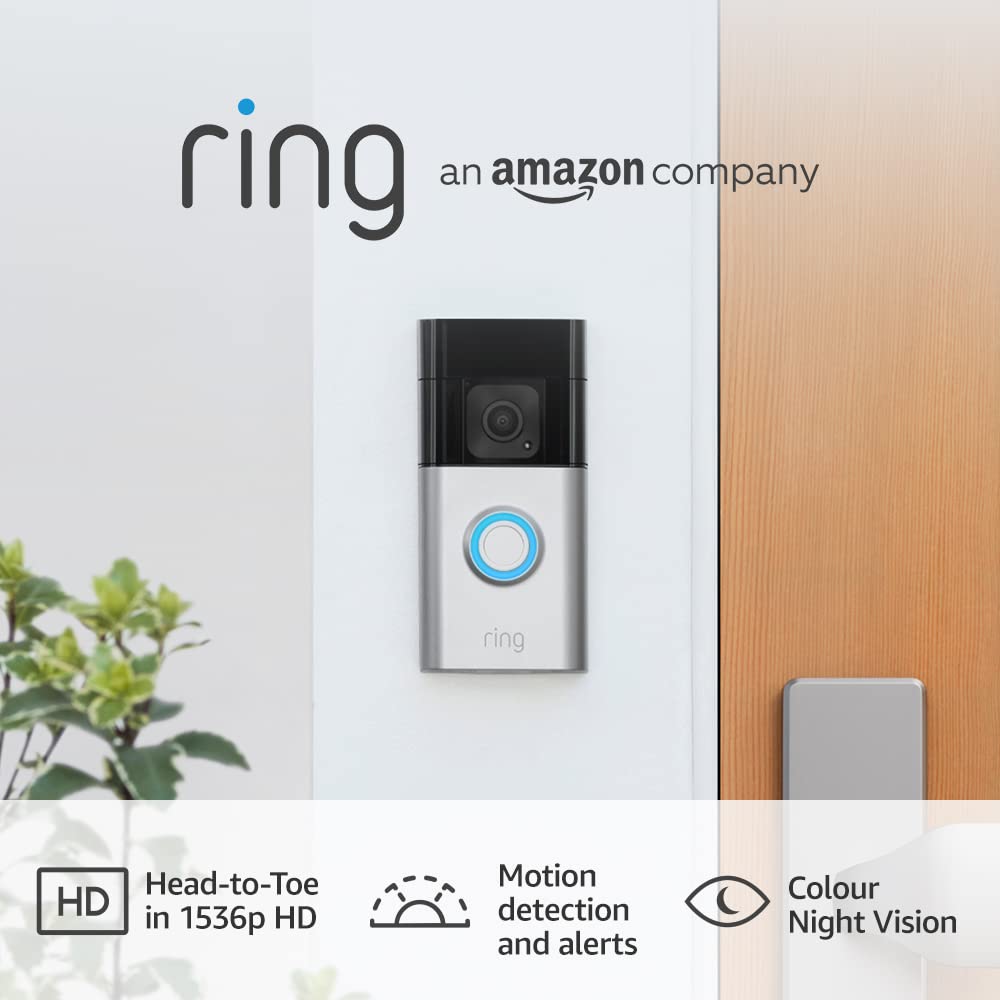
Ring vs Nest Summary
| Feature | Ring Video Doorbell | Nest Video Doorbell |
|---|---|---|
| Resolution | 1080p HD | 1080p HD with HDR |
| Two-Way Audio | Yes | Yes |
| Motion Detection | Yes (Customizable zones) | Yes |
| Facial Recognition | No | Yes (with Nest Aware subscription) |
| Night Vision | Yes | Yes (with HDR for enhanced visibility) |
| Power Options | Battery, Hardwired, Solar | Hardwired |
| Cloud Storage | Subscription-based (Ring Protect) | Subscription-based (Nest Aware) |
| Integration | Works with Amazon Alexa | Works with Google Assistant |
| Price Range | Affordable with multiple model options | Higher cost, more premium features |
Tapo Doorbell
Recently, we switched from Ring to the Tapo Doorbell, primarily due to Ring’s price increases. Tapo, developed by TP-Link, offers many of the same features at a more affordable price point. The Tapo Doorbell provides HD video, two-way audio, and motion detection, allowing us to keep an eye on our Airbnb properties. It also integrates well with other TP-Link smart devices and offers reliable security features without the high subscription fees. Tapo has been a great alternative to Ring for hosts looking for a cost-effective solution without sacrificing functionality.
Smart Sensors
Smart sensors can be installed on doors and windows to alert you if they’ve been left open. Motion sensors can also detect movement inside the property, which helps ensure security during unoccupied periods. Hive offers a range of smart sensors that can easily be integrated into your property’s system.
Smart Smoke and CO Detectors
Safety is paramount in any holiday home. A smart smoke detector, like Nest Protect, can alert you and your guests to dangers even when you’re away. Opt for a dual-purpose device that detects both smoke and carbon monoxide. These detectors are handy for preventing hazards and ensuring guest safety.
Smart Water Sensors
Water leaks are a costly problem, especially in holiday lets that may go unoccupied for periods. Smart water sensors, like those from Leakbot, can detect leaks early, helping you avoid expensive repairs. These sensors alert you instantly if there’s an issue, allowing you to address it quickly before it escalates.
Noise Monitors
Noise complaints can damage your relationship with neighbours and even lead to penalties from Airbnb or other platforms. Devices like Minut can monitor noise levels and alert you if things get too loud, allowing you to take action before complaints arise. These monitors don’t record conversations, making them privacy-friendly.
Smart Lighting
Smart lighting systems, like Philips Hue, allow you to control the lights in your property remotely. You can turn them on or off for security purposes or to create a welcoming atmosphere for arriving guests. Smart lights also contribute to energy savings, using significantly less electricity than traditional bulbs.
Smart Plugs
Smart plugs are an affordable and versatile upgrade for your holiday rental. These devices allow you to control appliances remotely, reducing the risk of appliances being left on. They can also be used to simulate occupancy when the property is vacant by turning lights or other devices on and off at set intervals.
Smart Speakers
Adding a smart speaker like the Amazon Echo or Google Home can enhance the guest experience by offering hands-free assistance. These devices can provide answers to frequently asked questions, control other smart devices, and even play music. For more premium sound quality, consider a Sonos One.
Smart TVs
A smart TV is almost an expectation for modern holiday lets. Guests can stream their favourite shows via services like Netflix, Amazon Prime, or Hulu, and you can make their stay more enjoyable by providing access to popular streaming apps.
For the smart TVs in our properties, we use Amazon Firesticks to provide guests with easy access to streaming services like Netflix, Amazon Prime, and more. Firesticks are affordable and easy to use, offering a great selection of apps. If you’re considering alternatives, Chromecast and Roku sticks are also excellent options that allow guests to stream content directly from their devices or enjoy built-in apps on the TV. These devices enhance the entertainment experience for guests, offering flexibility and convenience.
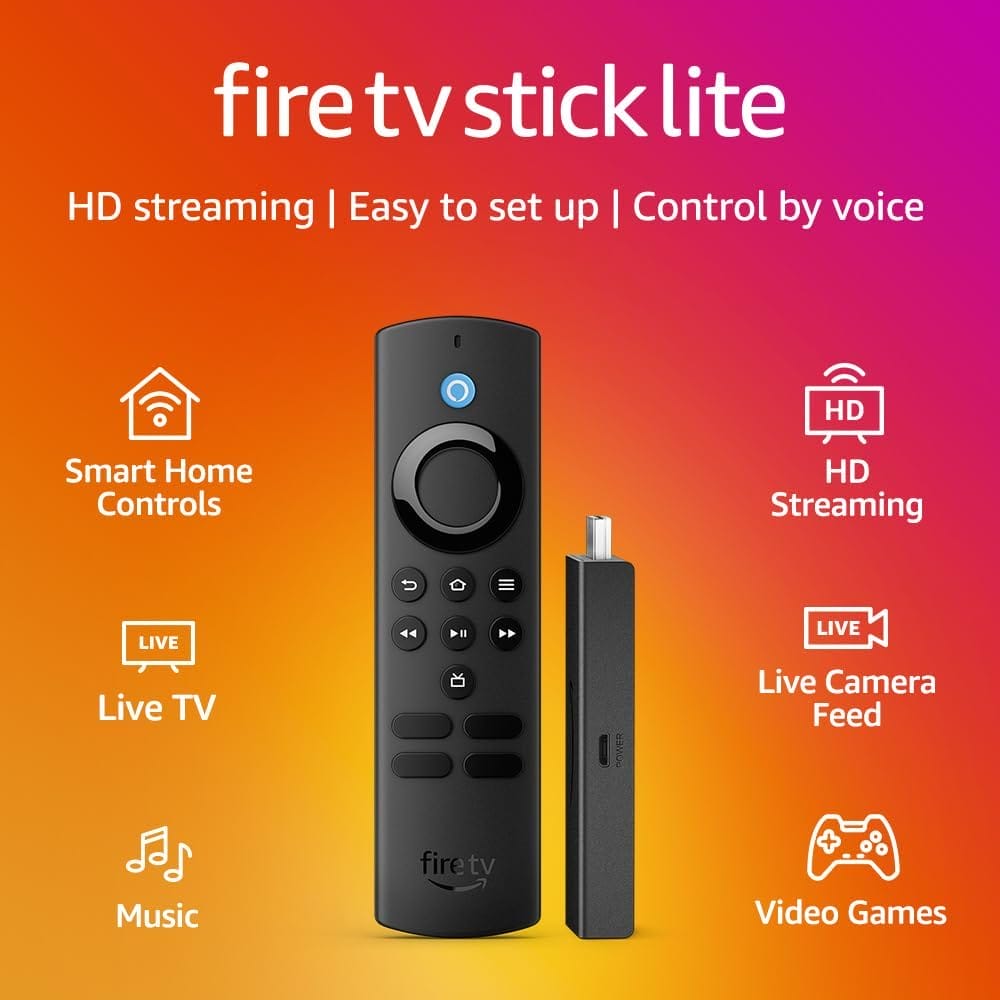
WiFi Boosters
Fast, reliable internet is essential for any successful holiday let. If your property has WiFi dead zones, consider adding a WiFi booster to improve signal strength and ensure a seamless online experience for guests.
Wireless Chargers
With the increasing number of devices guests bring, providing wireless chargers can be a big convenience. A charging station with multiple ports or a pad that supports simultaneous device charging will add a modern touch to your property.
Digital Guestbook
A digital guestbook can replace outdated physical ones, offering guests a more interactive and customizable experience. It can include useful information about your property, check-in instructions, WiFi details, and recommendations for local attractions. Digital guestbooks can be easily updated and accessed on mobile devices.
Conclusion
In 2024, integrating smart devices into your Airbnb, Vrbo, or Booking.com holiday lets is not just about keeping up with trends, it’s about staying competitive. These gadgets can significantly enhance guest experience, save you time and money, and improve the security of your property.
While there may be upfront costs, the long-term benefits of automation, energy savings, and convenience far outweigh them. With the right smart devices in place, you’ll meet and exceed guest expectations, leading to better reviews and higher occupancy rates.
